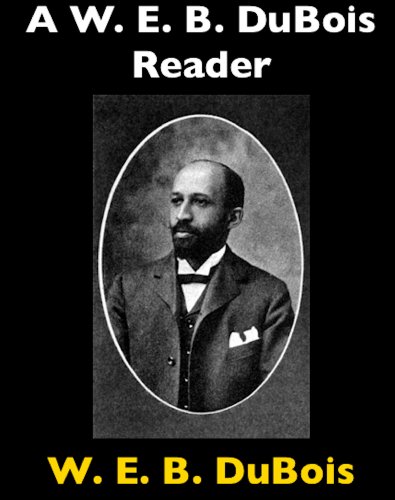A W. E. B. DuBois Reader
W. E. B. DuBois, Ronald J. Leach
eBook
(AfterMath, Dec. 10, 2012)
This volume, recently reformatted to meet current ebook standards such as having an active table of contents, is indispensible for anyone interested in African-American history, philosophy, sociology, and literature. It contains the important writings of a formidable figure: William Edward Burghardt DuBois. W .E. B. DuBois was born in rural western Massachusetts in 1868 during the Reconstruction period after the end of the Civil War. He did not experience many of the problems of others of his race during his growing years, but went to Fisk University in Nashville, Tennessee, where he graduated. He undoubtedly had his first serious encounter with virulent racism in that former member state of the Confederacy. He later went on to study at Harvard, where he became to first African-American to achieve a doctorate.He was one of the founders of the NAACP (National Association for the Advancement of Colored People in 1909. After the end of World War I, he traveled extensively in Europe in support of Pan-Africanism. He later had several disagreements with Marcus Garvey, over the importance of integration vs. separation. He died in Accra, Ghana, in 1963.There are several important books included in this volume. The first one is his most influential work, The Talented Tenth, which was written in 1903. The Talented Tenth, with its emphasis on concentrating educational resources on only the most talented, set up a fierce debate with Booker T. Washington, who emphasized vocational education as the path to economic and related success for all. DuBois obviously had a different view, holding that the greatest advancement of the (to use his term) “Negro race” would come from the accomplishments of extraordinarily talented people.(The copy of The Talented Tenth that we present here is taken from a compendium entitled The Negro Problem along with articles of Frederick Douglass, Booker T. Washington, Paul Lawrence Dunbar, Wilford H. Smith, H. T. Kealing, and T. Thomas Fortune. This can be found in the book Many by Douglass and DuBois published by AfterMath and is readily available and from some other sources.) The second book included is perhaps, DuBois’ most famous work, The Souls of Black Folk, which also was written in 1903. It is amusing to note that DuBois used the title “The Souls of White Folk” for the second chapter of his largely autobiographical work Darkwater, which is included in this volume.The third work included is The Negro, which was written in 1915.The fourth work included is The Negro in The South, which was written in 1907. The fifth work included is The Conservation of Races, also written in 1907. The sixth work included is The Philadelphia Negro, a landmark sociological study which was a breakthrough in the rigorous use of statistical data analysis for the assessment and description of a community. It was written in 1899 and the ideas remain essential in sociological research.The next two works included in this volume are the most important of his fictional writings, the largely autobiographical novel, Darkwater, published in 1920, and The Quest of the Silver Fleece, which was written in 1911. They are most interesting today for the eloquence of language and their added insight into the breadth of knowledge and talent of this most extraordinary man. It is clear that DuBois’ oratorical experience and talent extended to his novel writing. A passage from Darkwater shows the power of his writing and his ideas."Why—won't—Negroes—work!" she panted. "I have given money for years to Hampton and Tuskegee and yet I can't get decent servants. They won't try. They're lazy! They're unreliable! They're impudent and they leave without notice. They all want to be lawyers and doctors and" (she spat the word in venom) "ladies!"

 W
W
 W
W


 Q
Q
 P
P

 V
V

 Q
Q
 V
V
 P
P